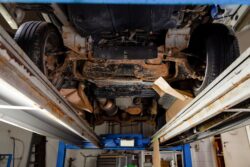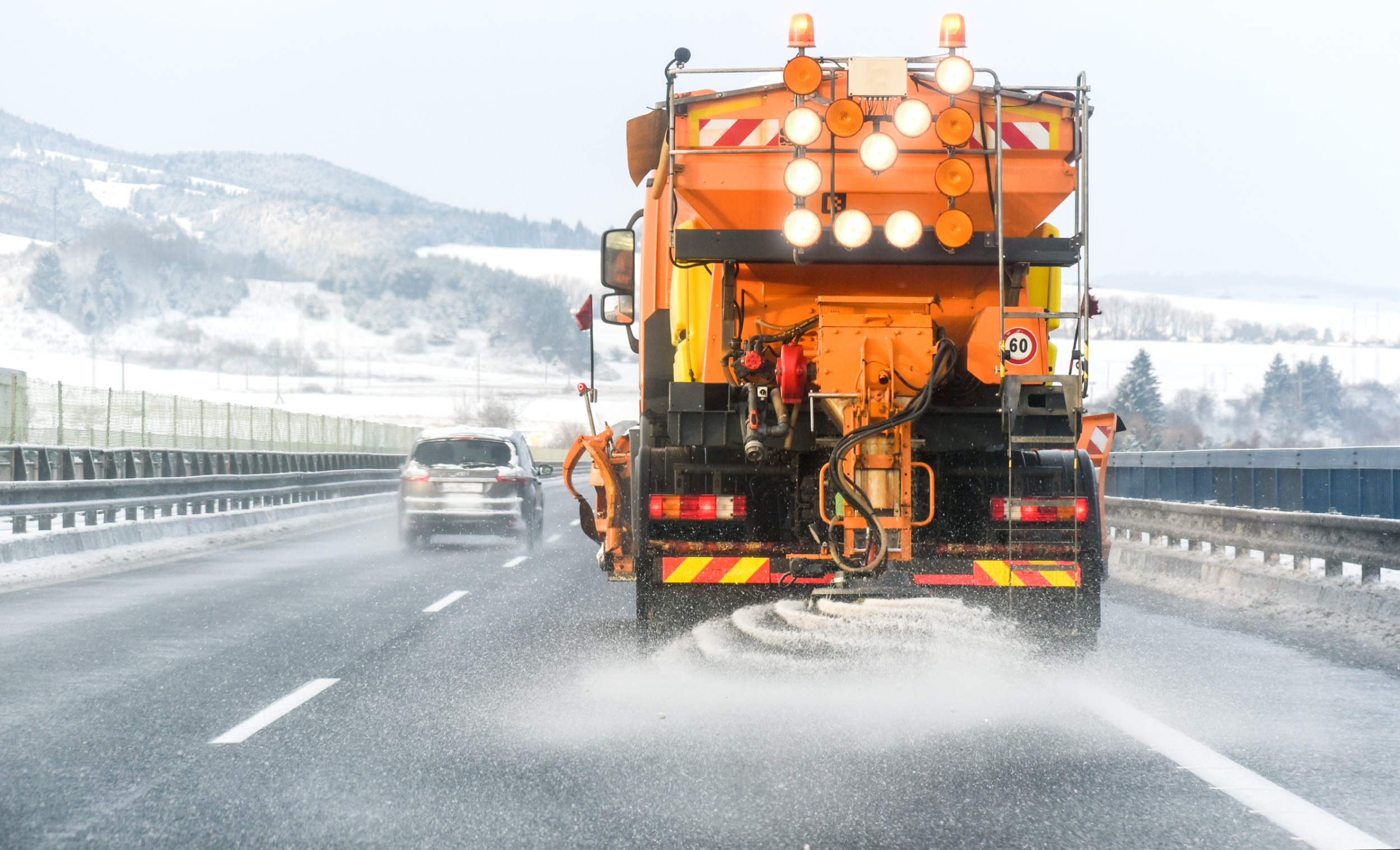Does my Car have Salt Damage
With lots of snow comes lots of salt. Be careful not to let salt damages creep up on your car and wreck your winter.
 Winter weather always plays havoc on our vehicles.
Winter weather always plays havoc on our vehicles.
The sudden drop in temperature causes our tires to suddenly lose air. This causes that pesky TPMS sensor to go off over and over. Our cars suddenly have trouble starting because the batteries are negatively affected. And, our wipers need replacing more frequently because the cold and ice warps them.
What you might not know to look out for is the underbody of your vehicle.
When snow is in the forecast, your state will put down a salt brine on the roads to prevent black ice. Salt itself causes corrosion in obvious places on your vehicle, but in brine form, it can reach into cracks and crevices, causing damage that you can’t see.
Here are some of the most common things brine will affect on your vehicle.
Brake Lines
If you recently had your brakes replaced or rotors resurfaced, but you’re experiencing a squishy brake pedal in the middle of winter, it’s time to check your brake lines.
The brine put down on roads will build up around the lines, and unless the lines are rubber coated, it will begin to eat away at your vehicle’s brake lines. This will cause leaks, which are accompanied by a soft or mushy feeling brake pedal, and in most newer vehicles, your brake warning light may come on.
Pugh’s Automotive Service provides free 30-Point Inspections that include going over the underbody of your vehicle. If you are worried that you may have corroded brake lines, call to schedule your appointment at (302)734-4231.
Suspension

If the brine can corrode your vehicle’s brake lines, why wouldn’t it be able to do the same to its shocks and struts? Why wouldn’t it be able to affect the frame?
Signs that you’re having suspension troubles often include irregular tire wear, bumpier than normal rides, and loud clanks when hitting bumps.
Driving too long with suspension issues can also cause frame damage, especially if there is corrosion caused by a build-up of salt.
These areas are extremely susceptible to damage from the brine because of how long the underbody of the vehicle stays wet. Wet conditions are a breeding ground for rust, and salt just speeds the process.
How Can You Prevent Salt Damage?
The answer to this question is easy. Take your car to get washed regularly during the winter, and request that the underbody get washed as well. Also make sure to have your mechanic regularly inspect the underbody for any abnormal signs of wear and corrosion.
It may be an extra few bucks a week, but you can pay it now, or pay it later when damages start causing critical parts on your vehicle to fail.
If you believe you are experiencing corrosion damage, or just want to be cautious, take advantage of our Free 30-Point Inspection. You can call to schedule, or submit a request online at www.pughsservice.com.
Drive safely!








